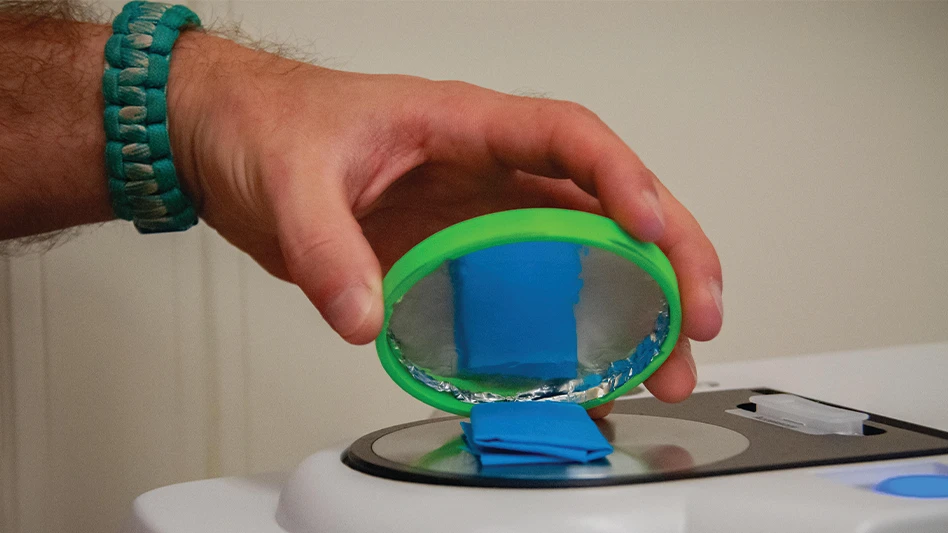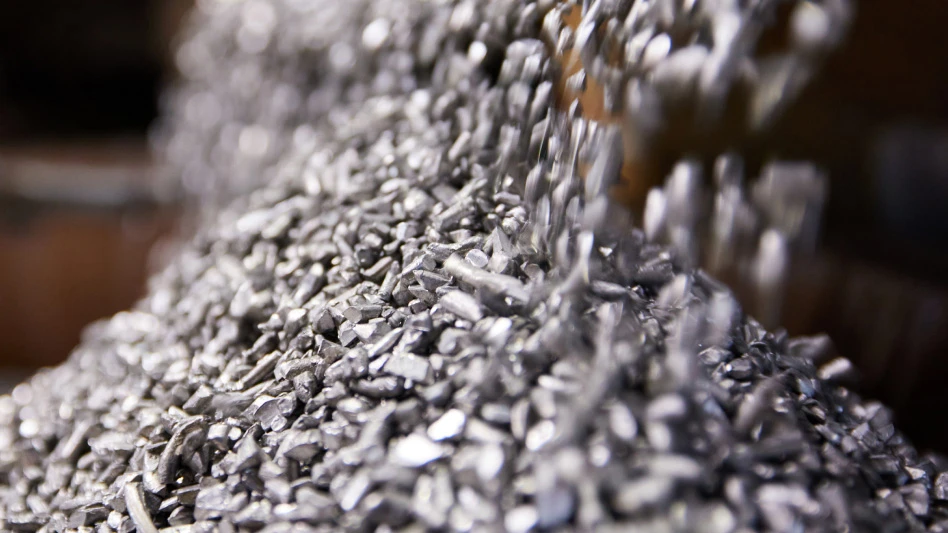
Photo courtesy of Coperion
German company Coperion has developed the ZSK FilCo filtration compounder, which allows filtration and compounding in a single production step, according to the company, offering higher product quality and reduced energy consumption when working with postconsumer resin.
RELATED: Embracing unreasonableness
With the ZSK FilCo system, recovered plastic is fed into a ZSK twin-screw extruder, where it is melted, homogenized and devolatilized. The melt is then fed through a filter to remove all contaminants before it is fed back into the same ZSK extruder to be compounded with reinforcing materials or fillers.
Compared with two-step production lines, Coperion says its ZSK FilCo is distinguished by more streamlined equipment setup. Energy consumption and emissions for the extrusion process are reduced by more than 50 percent, and ZSK FilCo is able to achieve a significantly higher product quality. Recompounds can be produced much faster, and Coperion K-Tron gravimetric feeders ensure the high-accuracy incorporation of additives for optimal results, the company adds.
In conventional recycling plants, energy for melting must be introduced twice. Along with high energy consumption, the recyclate is subjected to high thermal stress, which can result in lower product quality given increased degradation and shortening of polymer chains.
Using ZSK FilCo, plastic scrap is fed into the ZSK extruder in the form of regrind, fiber pellets, film flakes or agglomerate and is melted, homogenized and devolatilized. Next, the melt is fed through an integrated filter that removes contaminants. Reintroduction into the ZSK extruder process section follows, where reinforcing materials or fillers are added, and the recompound is pelletized.
The ZSK FilCo’s space requirement is comparatively low, the company says, and energy consumption and emissions for the extrusion process are reduced. Thanks to the twin-screw extruder’s high mechanical energy input, the melting process is more energy-efficient than with a single-screw extruder and the second melting process for compounding is eliminated as is pelletizing of the intermediate compounds.
“The ZSK FilCo is one more result of our targeted efforts to optimize the recycling of plastics and to further increase the sustainability of the overall process," says Marina Matta, team leader, process technology recycling, at Coperion. "The ZSK FilCo’s excellent energy economy and the high-end product quality that it achieves are important benefits that will once again make PCR and polymer recycling a bit more attractive for many companies.”
Latest from Recycling Today
- APR launches Recycling Leadership Awards
- Private equity firm announces majority investment in Sprout
- Author predicts spike in silver’s value
- SWANA webinar focuses on Phoenix recycling collaboration
- Domestic aluminum demand up through Q3 2024
- IntelliShift honored at IoT Breakthrough Awards
- Ace Green Recycling finalizes plans for battery recycling site in India
- Ambercycle, Benma partner to scale circular polyester





